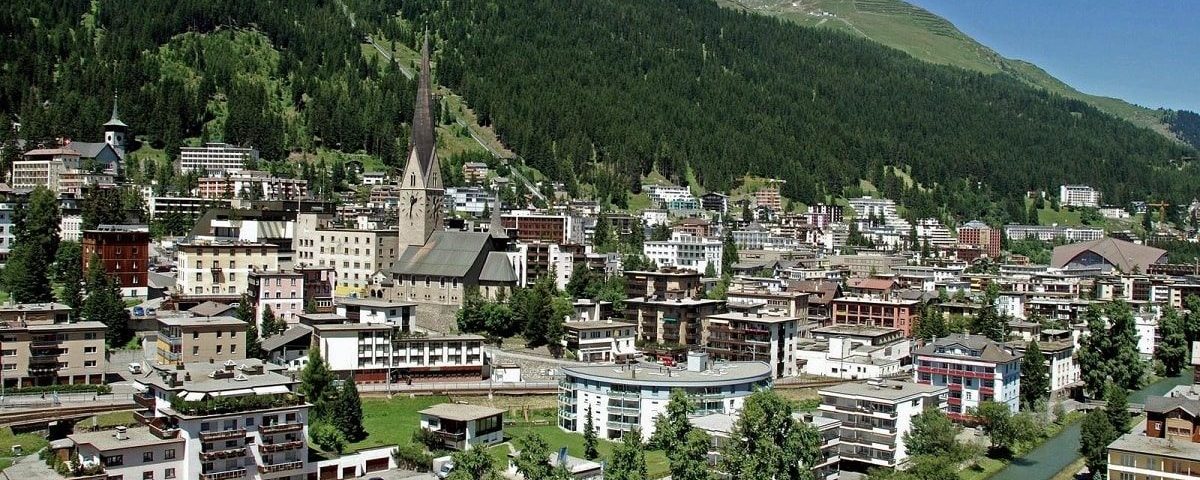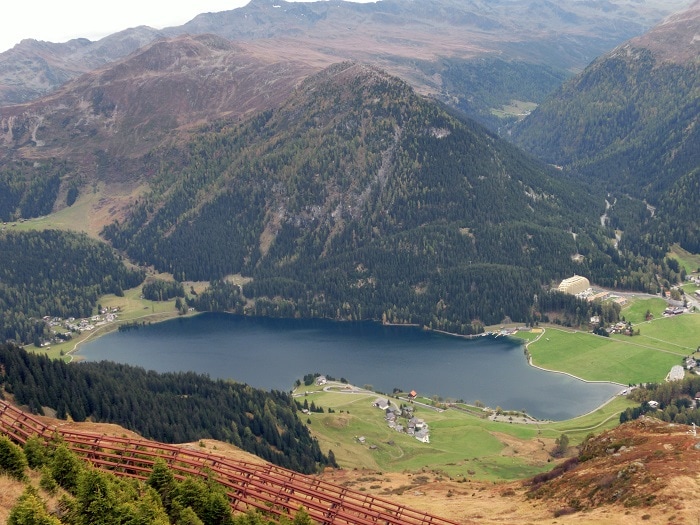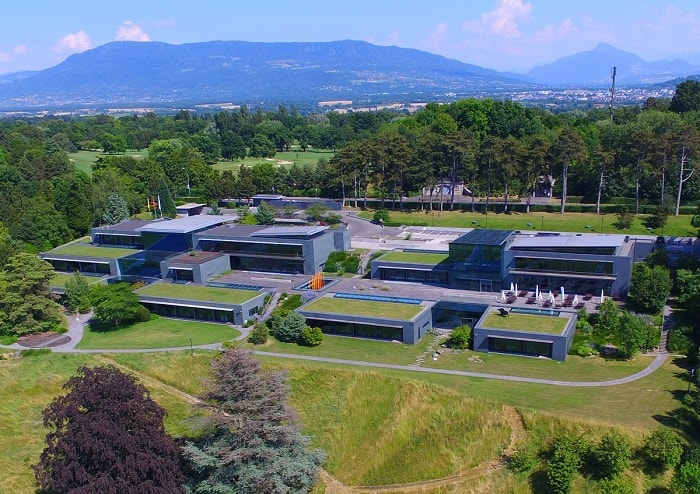
How Davos Went from Being a Small Swiss Town to a Symbol of Global Economic Power
22 of January of 2020
If there’s one thing that the small town of Davos, in the Canton of Grisons in Switzerland, is known for, it is being the current headquarters of the World Economic Forum. Popularly known as the ‘Davos Forum,’ this year marks its 50th anniversary. Before it became home to this major global economic forum, this beautiful place in eastern Switzerland – which looks like an incredible Christmas postcard in winter, with its backdrop of towering, snow-capped mountains – was the site of numerous sanatoriums for treating diseases, such as tuberculosis.
Decades ago, it was much less of a tourist destination where Nazis, American fighters participating in World War II, and even refugees from different concentration camps used to gather. So how did Davos become the luxurious capital of the economy and global politics, establishing itself as the current headquarters of the World Economic Forum? The secret is in its history.
A place to fight tuberculosis

Source: Wikimedia Commons | Author: Capricorn4049
At an altitude of 1,560 meters above sea level – giving it the distinction of being the highest city in the Swiss Alps – the history of this small town peaked in the mid-19th century when various doctors chose Davos as the ideal place to fight the diseases that plagued the area’s population at the time, with tuberculosis being the main enemy.
Medical professionals of the time began to prescribe leading remedies of long walks in the mountains for patients to breathe in the fresh air, along with abundant meals that included plenty of wine and milk. This type of treatment survived into the first thirty years of the nineteenth century for the sorts of pathologies that doctors could only help alleviate in that day, as they didn’t fully know how to eradicate them totally. The most curious part of all of this is that doctors intended to establish a sort of purity in their methods based on fresh alpine air, red meat, white milk, and red wine.
However, this wasn’t all bad news for Davos since, at that time, there was an explosion of spaces and activities for different European resorts that attracted the wealthiest, most powerful people from the surrounding area. This brought about a strange mix of the powerful and the ill on the streets of this charming town. The turning point in this story is the discovery of penicillin in 1928, and subsequent developments led to an effective cure for tuberculosis. This made it easier for sanatoriums to gradually reduce the number of patients, allowing tourism to grow exponentially in the area.
Davos: a symbol of cultural mixture
Switzerland, which remained neutral in conflicts leading up to World War II, was embroiled in the Nazi takeover of Davos when Adolf Hitler seized power in the neighboring German country. One of the strangest phases that took place in this beautiful landscape happened after the end of World War II when Nazi officers, U.S. Army pilots, and even refugees from some nearby concentration camps all came to this same place.
The ‘World Economic Forum’ (WEF): a new identity for Davos celebrates its 50th anniversary

Source: Wikimedia Commons | Author: Alexey M
Years after the end of the global war that kept the whole world on edge, the first meeting of what would later become the so-called ‘Davos Forum’ would take place. The year was 1971, and this event went by a different name. The ‘European Management Forum’ was founded by Klaus Schwab and kept this name until 1987, when it would adopt the name it bears today.
Nowadays, the ‘World Economic Forum,’ held every year in the Swiss city, is characterized not only as a convention for economic and political leaders worldwide, but also as a non-profit organization whose objective is improving the state of the world by analyzing the international landscape and identifying various threats, challenges, and opportunities. To meet this goal, the WEF has annual participation from extremely influential, internationally recognized individuals from both the public and private spheres.
This 2020, the summit will bring together some 3,000 participants from all over the world, and the primary objective will be helping international governments and institutions move towards the Paris Agreement and Sustainable Development Goals through “stakeholder capitalism,” as well as fostering discussions about technology and business organization. This summit, which is celebrating its 50th year, will take on the new role that companies are facing in the fourth industrial revolution that is underway. It will also address six key challenges that should be addressed immediately, including:
- Boosting ecology to raise awareness of the imminent challenges posed by climate change
- Successfully creating a more inclusive economy
- Creating an international agreement on developing technologies in this fourth industrial revolution
- Continuing to train one billion people and assist in their advancements over the next decade
- Establishing effective solutions for resolving global conflicts
- Supporting companies in creating new business models that can drive the fourth industrial revolution
For Klaus Schwab, founder and president of the ‘World Economic Forum,’ the efforts being made to keep global warming limited to 1.5 degrees Celsius are cutting it dangerously close. That is why he has emphasized that with the planet in such critical condition, a new manifesto should be developed this year with the objective of redesigning purposes and dashboards for companies and governments.
Schwab is still a leader of the ‘World Economic Forum,’ which is held every January in the small town of Davos, a city that went from being visited by tuberculosis patients to finding a cure for their disease, and then to hosting the most prestigious leaders from around the world in a winter wonderland.





There are no comments yet